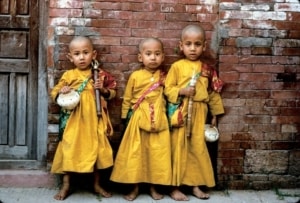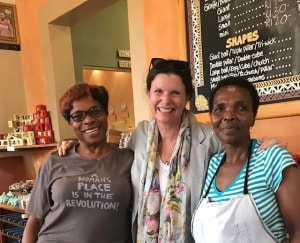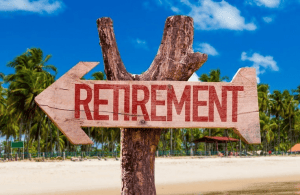John:
How did you decide to volunteer internationally and get involved with Earthwatch?
Muriel:
My husband and I heard about Earthwatch in 1989 from a fellow hiker on the Milford Track in New Zealand. The following week another hiker we met on the Routeburn hut-to-hut hike, also recommended Earthwatch expeditions. When we came home we joined Earthwatch, but my husband was diagnosed with prostate cancer before we had a chance to do an expedition. Before his death in 1990 he encouraged me to join their trips as I couldn’t continue hiking by myself. We had lived overseas for 17 years, in South America, North Africa and Europe, so I love international travel. (My two older children were born in Aruba, and the two younger ones in Benghazi, Libya). I’ve now done 35 expeditions, and sent my three older grandchildren on four each. I have five younger ones who can’t wait to go when they turn 16.
John:
What is the nicest thing about your volunteer service?
Muriel:
Instead of contributing blindly to environmental causes, I know what my money is being used for by going along with my money on an Earthwatch expedition. The other volunteers have similar interests to my own. I tend to choose trips that require hiking, and research on birds or animals.
John:
What has been the hardest part of your volunteer service?
Muriel:
There is no “hard” part, except it’s hard to choose which expedition to do. Their Guide is like a Christmas Wish Book – I want to do them all. I often tell people that if they ever wanted to join the Peace Corps but don’t want to be away two years, an Earthwatch expedition gives one a sample of what that’s like. When I go to South America or Australia I usually do two different expeditions back-to-back. e,g, I went to Perth to do an expedition, then had two weeks free before reporting to Kangaroo Island for another one. I flew to Broome and Darwin, renting a bike in each place to tour the countryside by myself.
John:
What should a prospective volunteer consider when choosing an Earthwatch Institute program.?
Muriel:
Earthwatch has a full briefing of each expedition on its website, showing how many hours will be spent walking and sitting, how many pounds to be carried on a daypack, and how strenuous the duties will be. Prospective volunteers should read this carefully also noting the type of climate and altitude involved. If they haven’t done any similar trips, they should choose an easy expedition at first.
John:
Do you have any Earthwatch expeditions planned at this time?
Muriel:
I don’t have any planned at this time. My trips this year are visiting my scattered family, and while there, giving slide/talks on my Earthwatch expeditions, e.g. I’ll give three talks this month (April 2009) in Marin County, CA while visiting my son and five talks in May while visiting. I my brother on Long Island, NY. I also have ten talks scheduled in Southern California at a men’s club, high school science classes, libraries, science teachers’ meeting, Audubon clubs, etc. In addition I will have an Earthwatch booth at three Earth Day celebrations this month.
John:
Do you have any favorite anecdotes that you remember from previous expeditions?
Muriel:
A. On expeditions that I did, three volunteers found their future spouse by falling in love with an assistant scientist. Other Earthwatchers can relate similar happy tales.
B. On an archeological dig in Peru we were each assigned a local resident in his 20’s to do the heavy lifting. They were invited to the farewell dinner of the first team, but none came. The scientist found out that their wives wouldn’t let them out at night, thinking they would get drunk. Future teams held their farewell dinner at noon, and then we all went back to finish our work – problem solved. We enjoyed partying with them one evening when they invited us to their home to celebrate a baby’s christening. We were surprised to learn those parties last until dawn!
C. On my first expedition, at a national park near Perth, Australia, the BBC filmed our work for a documentary. We enjoyed eating meals with the crew and learning about their work.
D. An expedition at a research station in Bolivia had scientists from the Smithsonian, Germany, Belgium and England doing other research. Since we all ate in the same dining hall, it was interesting meeting them finding out what they were doing.
E. On the expedition monitoring leatherback turtles in Costa Rice, temperature probes were placed in the nests, and half-coconut shells placed over the wire sticking out of the sand. Since we walk the beach all night, we aren’t on the beach before noon. One afternoon we discovered all the coconut shells were picked up by Boy Scouts cleaning the beach, and those wires were then very hard to find.
F. When we arrived in the Pantanal region of Brazil, a fire that had been set to teach ranchers how to put it out, was out of control. The younger Earthwatchers were thus recruited to fight the fire. The scientist had to modify his research plans because we couldn’t go to that area looking for birds.
G. The scientist usually gives lectures in the evening, but on one expedition there were five volunteers with PhD’s, so in his instruction letter to us before we left home, he requested that we each give a presentation. It was a great learning experience, including instruction in making origami cranes from a Japanese lady volunteer.
John:
What advice would you give future volunteers?
Muriel:
Don’t be afraid to try an expedition. I’ve met many volunteers who, when they finally signed up, couldn’t wait to do another one.
John:
Are there any other thoughts you would like to share with future volunteers?
Muriel: .
–An Earthwatch expedition takes you to places that most tourists don’t go.
–The Earthwatch cost can be paid for with appreciated stock, thus avoiding capital gains . tax. The Earthwatch fee + airfare is tax deducible for U. S. residents.
–The cost of sending my grandkids was also tax-deductible.
John:
Thanks very much, Muriel, for a delightful interview.




